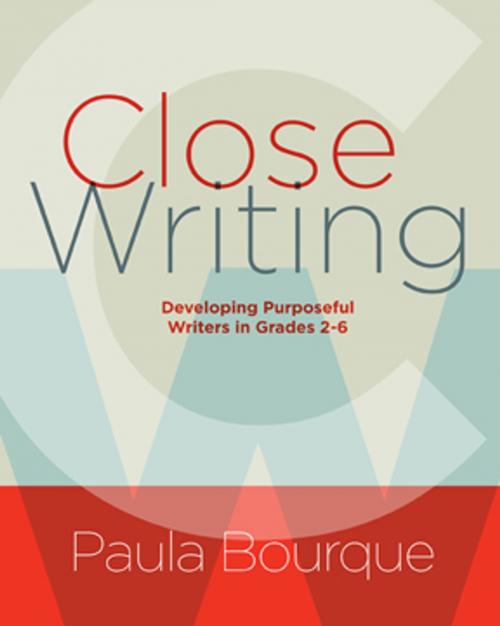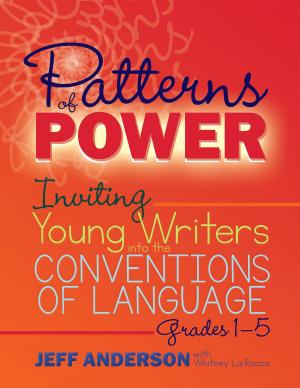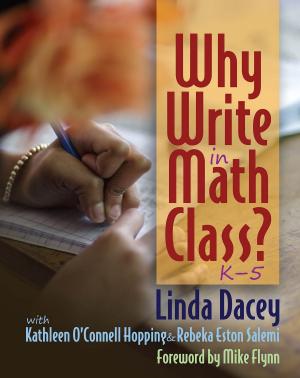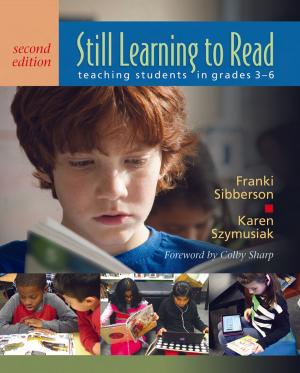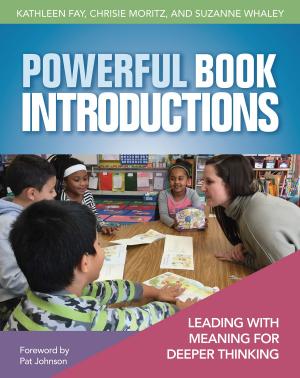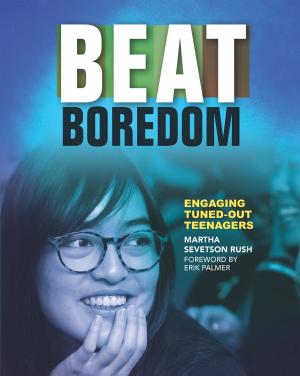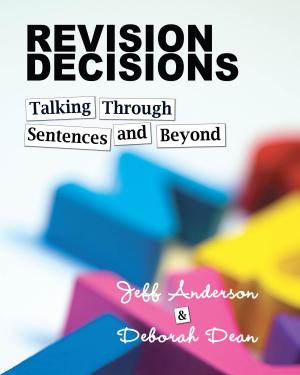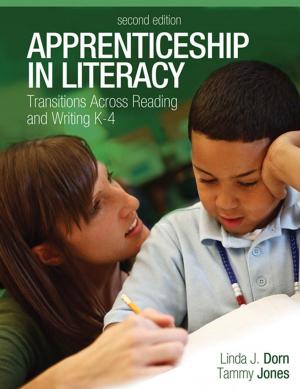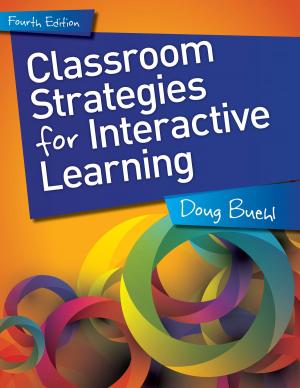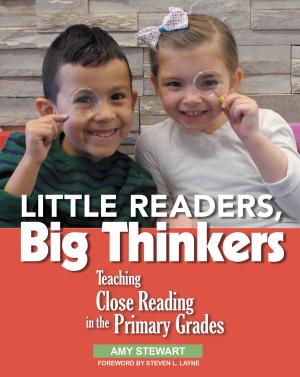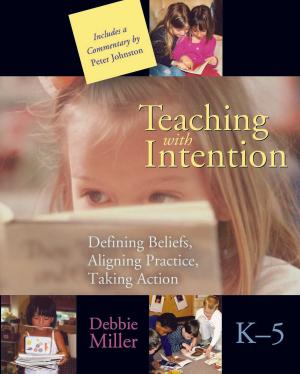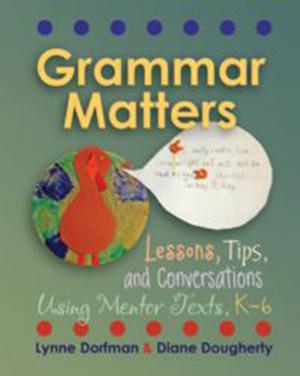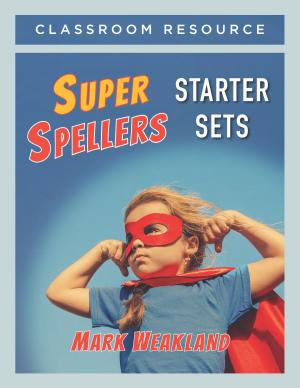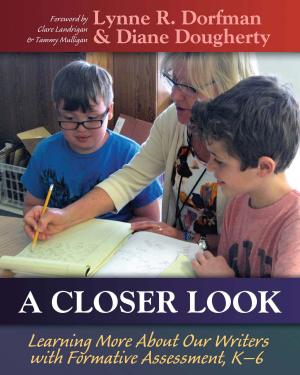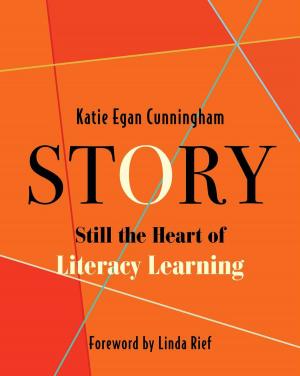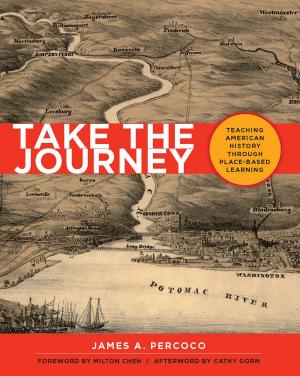Close Writing
Developing Purposeful Writers in Grades 2-6
Nonfiction, Reference & Language, Education & Teaching| Author: | Paula Bourque | ISBN: | 9781625310545 |
| Publisher: | Stenhouse Publishers | Publication: | December 28, 2015 |
| Imprint: | Stenhouse Publishers | Language: | English |
| Author: | Paula Bourque |
| ISBN: | 9781625310545 |
| Publisher: | Stenhouse Publishers |
| Publication: | December 28, 2015 |
| Imprint: | Stenhouse Publishers |
| Language: | English |
How closely do your students read their writing? What are the implications for those who do and those who don’t?
During her work in classrooms, literacy coach Paula Bourque noticed that students who read their own writing closely are engaged in their work, write fluently, are able to produce lengthy drafts, and incorporate teaching points from mini-lessons into the day’s writing.
In this comprehensive book, Paula shows you that no matter what structures or lessons you use in your writing classroom, the strategies in Close Writing will help you make these better by creating student writers who are more aware of what effective writing looks like, who care about what they write, and who take ownership and responsibility for their growth as writers.
Paula argues that a key element in close writing is learning to look and looking to learn by closely reading our own writing. Instead of focusing on the mechanics of their writing, she encourages students to read their words for understanding, clarity, and the effect they will have on an audience. She urges them to recognize their habits and their approaches to writing and to build upon them.
Close Writing is based on research and methods that are reliable and valid best practices, but it will not prescribe lessons or structures. It gives you a peek inside classrooms where teachers just like you are working with budding authors just like yours. Paula also provides considerations for ELL writers, as well as a section of interviews with authors. She shares an extensive reference/resource guide, and a companion website with students’ work samples, reproducibles and templates, and videos of classroom writing lessons round out this must-have resource.
During her work in classrooms, literacy coach Paula Bourque noticed that students who read their own writing closely are engaged in their work, write fluently, are able to produce lengthy drafts, and incorporate teaching points from mini-lessons into the day’s writing.
In this comprehensive book, Paula shows you that no matter what structures or lessons you use in your writing classroom, the strategies in Close Writing will help you make these better by creating student writers who are more aware of what effective writing looks like, who care about what they write, and who take ownership and responsibility for their growth as writers.
Paula argues that a key element in close writing is learning to look and looking to learn by closely reading our own writing. Instead of focusing on the mechanics of their writing, she encourages students to read their words for understanding, clarity, and the effect they will have on an audience. She urges them to recognize their habits and their approaches to writing and to build upon them.
Close Writing is based on research and methods that are reliable and valid best practices, but it will not prescribe lessons or structures. It gives you a peek inside classrooms where teachers just like you are working with budding authors just like yours. Paula also provides considerations for ELL writers, as well as a section of interviews with authors. She shares an extensive reference/resource guide, and a companion website with students’ work samples, reproducibles and templates, and videos of classroom writing lessons round out this must-have resource.
How closely do your students read their writing? What are the implications for those who do and those who don’t?
During her work in classrooms, literacy coach Paula Bourque noticed that students who read their own writing closely are engaged in their work, write fluently, are able to produce lengthy drafts, and incorporate teaching points from mini-lessons into the day’s writing.
In this comprehensive book, Paula shows you that no matter what structures or lessons you use in your writing classroom, the strategies in Close Writing will help you make these better by creating student writers who are more aware of what effective writing looks like, who care about what they write, and who take ownership and responsibility for their growth as writers.
Paula argues that a key element in close writing is learning to look and looking to learn by closely reading our own writing. Instead of focusing on the mechanics of their writing, she encourages students to read their words for understanding, clarity, and the effect they will have on an audience. She urges them to recognize their habits and their approaches to writing and to build upon them.
Close Writing is based on research and methods that are reliable and valid best practices, but it will not prescribe lessons or structures. It gives you a peek inside classrooms where teachers just like you are working with budding authors just like yours. Paula also provides considerations for ELL writers, as well as a section of interviews with authors. She shares an extensive reference/resource guide, and a companion website with students’ work samples, reproducibles and templates, and videos of classroom writing lessons round out this must-have resource.
During her work in classrooms, literacy coach Paula Bourque noticed that students who read their own writing closely are engaged in their work, write fluently, are able to produce lengthy drafts, and incorporate teaching points from mini-lessons into the day’s writing.
In this comprehensive book, Paula shows you that no matter what structures or lessons you use in your writing classroom, the strategies in Close Writing will help you make these better by creating student writers who are more aware of what effective writing looks like, who care about what they write, and who take ownership and responsibility for their growth as writers.
Paula argues that a key element in close writing is learning to look and looking to learn by closely reading our own writing. Instead of focusing on the mechanics of their writing, she encourages students to read their words for understanding, clarity, and the effect they will have on an audience. She urges them to recognize their habits and their approaches to writing and to build upon them.
Close Writing is based on research and methods that are reliable and valid best practices, but it will not prescribe lessons or structures. It gives you a peek inside classrooms where teachers just like you are working with budding authors just like yours. Paula also provides considerations for ELL writers, as well as a section of interviews with authors. She shares an extensive reference/resource guide, and a companion website with students’ work samples, reproducibles and templates, and videos of classroom writing lessons round out this must-have resource.
